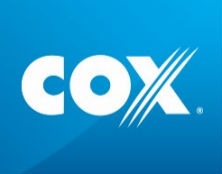
Regular Internet providers are being put under increasing pressure for not doing enough to curb copyright infringement.
Music rights company BMG got the ball rolling a few years ago when it won its piracy liability lawsuit against Cox Communications.
The ISP was ordered to pay $25 million in damages and another $8 million in legal fees. Hoping to escape this judgment, the company filed an appeal, but the case was eventually settled with Cox agreeing to pay an undisclosed but substantial settlement amount.
The landmark case signaled the start of many similar lawsuits against a variety of ISPs, several of which are still ongoing. In fact, just days after the settlement was announced, Cox was sued again, this time by a group of RIAA-affiliated music companies.
In simple terms, the crux of the case is whether Cox did enough stop pirating subscribers. While the ISP did have the policy to disconnect repeat infringers, the music companies argue that this wasn’t sufficient.
Over the past several months, both parties have conducted discovery and they are currently gearing up for a jury trial which is scheduled for December.
Most recently, both parties have presented their motions in limine, requesting the court to exclude certain testimony from being presented to the jury. This is typically material they see as irrelevant, misleading, or confusing.
One of the music companies’ motions focuses on a document (DX 74) Cox wants to present which indicates that the ISP’s own graduated response system worked pretty well.
Apparently, internal Cox research showed that 96% of subscribers stop receiving notices after the 5th warning. This was concluded in 2010 and resulted in the ISP’s belief that its “graduated response” system was effective.
The number was also brought up to the plaintiffs, as it was mentioned during the Copyright Alert System negotiations. Cox says that it chose not to join this voluntary piracy notice agreement because it already had a functional anti-piracy system in place.
The music companies don’t want this evidence to be shown to the jury. In a reply to Cox’s objections, they argue that the facts and figures in the document are a confusing mess of misleading calculations that lack data to support them.
The reply, which also rebuts other issues, is aggressively worded and redacts the 96% figure at the center of the dispute.
“The mere utterance of the so-called ‘study’ and its misleading and unsupported conclusion will lend it an air of credibility in the jury’s mind. The proverbial bell cannot be un-rung. The only adequate solution is exclusion,” the music companies write.

Cox has also submitted a variety of motions in limine. Among other things, the ISP doesn’t want the plaintiffs to present the millions of infringement notices tracking company MarkMonitor sent to Cox on behalf of other rightsholders.
The music companies disagree, however, arguing that the jury is allowed to know that potential copyright infringements are not limited to their own complaints. The other notices are also relevant to determine crucial issues such as liability, willfulness, and statutory damages, they add.
According to Cox, however, these third-party infringements notices are irrelevant to the present case and don’t prove anything.
“Plaintiffs’ attempt to litigate this case with evidence from an unrelated case concerning acts of infringement that are not at issue is inappropriate, improper, and prejudicial. Plaintiffs’ evidence of third-party infringement allegations should be excluded from trial.”
The docket is littered with back and forths on issues one party wants to exclude while being considered vital evidence by the other. This process is generally the last major clash before the trial starts.
The court has yet to rule on the various motions. When that is done the case will move forward. If all goes according to the current schedule, the verdict will be announced in a few weeks.





